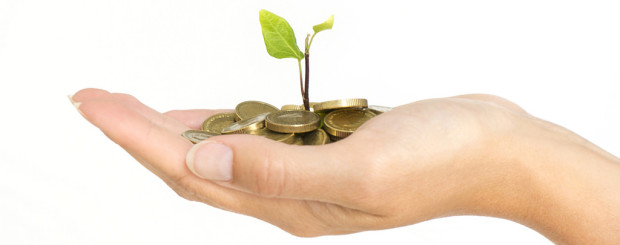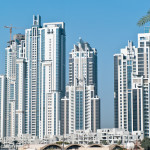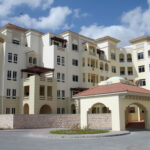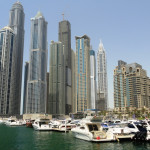9 Tips on Saving Money When Living in Dubai
Avoid leaving Dubai even more broke than when you arrived – Expats living and working in Dubai, it seems, prefer life in the fast and expensive lane and despite the salaries and expenses packages that lured them to this 21st century metropolis, they all too frequently find themselves, like Micawber, spending twenty shillings and sixpence for every pound they earn.
Result: misery! So how can one avoid the overspending traps, have a good time and leave with a healthy bank balance and saving goals achieved? Read on, for a few tips that will help you save money and still enjoy life when you move to Dubai.
Budget – and then stick to it!
Make a weekly or monthly budget, and don’t allow the numerous temptations that Dubai will offer cause you to lose sight of your long term goals. Remember that between 25-30% of your monthly income is likely to be soaked up by fixed expenses like rent, and utility bills.
Add car loans and depending on how extravagant you have been, these fixed expenses as part of your monthly budget could easily exceed 50% of your income. Don’t fixate on an actual sum that you want to save; rather focus on the percentage of your monthly income that you squirrel away. What could it be: 25% or maybe 30%? I know working couples who manage to save in excess of 50% of their combined monthly incomes, yet they still have nice cars and don’t have any trouble going out to quite expensive restaurants once or twice a month.
Of course, 50% might be a bit excessive in your first years, when you have those initial start-up costs like cars, furniture and appliances to amortize, but if you plan to stay a few years, once these are paid off, you can easily increase the percentage of savings upwards.
How’s this for starters then: 50% for fixed costs, as exemplified above; 20% for regular living costs, like your weekly grocery bill (more on this later), 10% for discretionary spending, including outings, dinners etc and 20% set aside for savings.
Supermarkets: We all like to shop in Waitrose, but if you want to save money….
Waitrose and Spinneys are not the only supermarket chains in Dubai and the other Emirates of the UAE. You can get 90% of your regular weekly shopping items at any Carrefour at a considerably lower price than Waitrose and Spinneys.
Also, consider shifting your fruit and vegetable shopping to places like Union Co-Op in Dubai, Sharjah Co-Op in Sharjah and their more local equivalents in the other Emirates. Buy your fish from the fish markets in Dubai and Sharjah ports: it comes straight off the boats and you can get your fish cleaned for you on the spot if you are squeamish, but you pay a little extra for this.
And OK – I admit it. I still haven’t been brave enough to use the local meat markets. But Carrefour is cheaper than Waitrose/Spinneys, by quite a decent margin for Australian and NZ beef and sheep meats. It is also reasonable for fish.
Only one card, and pay the monthly bill on time
The banks, once you have made your choice, will do all they can to entice you into taking their credit card as well. In fact, you don’t even have to have an account with a bank to get a credit card. Don’t be afraid of the local banks: Dubai is determined to be the financial hub of the Middle East and makes sure that the banks behave themselves as far as their customers are concerned.
However, as a determined and goal-driven saver, it’s probably best that you resist the urge to have multiple credit cards with multiple banks. If the credit limit that you are offered isn’t enough, go elsewhere – there’s plenty of competition for your monthly dirhams.
Most banks will start off cautiously with a credit limit related to your monthly salary, but it will increase if you show yourself to be reliable with payments. But remember, the banks count on most credit card users not paying their monthly bills in full on the date due because then they get into you, big time, with interest rates that make your eyes water: around 30% is not unusual.
So use a credit card with discretion; they are a bit of a necessary evil for 21st century life, but always remember to pay that bill in full on the date due each month. Otherwise, it’s a bit like giving the bank or credit card company the right to shove a powerful vacuum-cleaner into your piggy bank. The dirhams or dollars will just fly right out.
Take it home right away; you’ve got six years to pay, but choose a sensible vehicle
There’s always a tug of war between the car we want to own and the car we should own. Dubai makes it very easy for the new expat to satisfy his or her automotive desires, but often at the cost of those savings goals or the generous percentage of income that you have allocated to savings in your budget.
If you have young children and you are nervous about the driving habits you are going to see and experience on Dubai’s highways, then you will probably be drawn to owing an S.U.V. I get it; I really do. You want the height, the visibility and extra metal for protection that a big wagon provides, but just remember that it doesn’t have to be a Lexus or a Nissan Armada. Look around the marketplace for deals – a Mitsubishi Pajero – a well regarded S.U.V. – can be had for less than half the price of a Toyota Landcruiser, but you still get almost all the same advantages of height, visibility and solidity.
If you don’t need an S.U.V., you have an equally wide-ranging choice of cars, but the same logic applies. We’d all like to drive Porsches and Aston Martins but ultimately, we’ll probably be happier with Toyotas or Hondas when it comes to leaving and looking at the savings we’ve achieved.
The car companies offer up to six years to pay the car off in monthly installments, but if you choose to do it in, say, three years, then that’s less interest to pay and dirhams that can go into your savings account, rather than the car dealer or finance company’s accounts.
Timing is everything
Stocking up on winter clothing for the December holiday? Buy in the middle of summer. Dubai’s sales and outlets are legendary, so if you can keep your urges for retail therapy on the leash for just a little past season’s peak you can do very well indeed. Particularly if you are on the look-out for clothing or footwear “classics”. A nice pair of desert-boots – which you will almost certainly not wear in the sand – for a European spring or autumn? They’ll probably be half price in Dubai in July or August. A classic winter coat for cooler temperatures? Buy when it’s hot or on sale.
Same applies with travel. Once the schools and colleges are out and it’s vacation time, air-fares hit their peak. If you have the flexibility to plan your holidays for off-peak times, you can save a lot. Air-fares will rise dramatically around June 15th each year and stay high until about September 15th. But that being said, there’s often a quiet time in mid-July.
Imported vs local food
As concerned environmentalists, we should all be concerned about the environmental cost of consuming food products that need to be air-freighted from half a globe away. I’m as guilty as anyone in preferring New Zealand apples over Iranian apples, not that there’s anything wrong with the latter.
But there’s also a fairly respectable financial incentive to shopping locally. Read the supermarket cards which tell you place of origin (Waitrose, Spinneys and Sharjah Co-op all have these, so I’m sure that all the other major players will as well) and compare prices. French potatoes….or Lebanese or Saudi? Egyptian navel oranges….or Australian? You’ll get the picture pretty quickly.
Rent a villa or rent an apartment?
Now, if you have children, especially younger children, I fully understand why you would prefer a villa, with everything on one floor, two at the most, and access to a garden with plants and lawn to an apartment on anywhere between the ground and 30 plus floors in the air. However, be aware that there are far more costs to villa life than just the rent alone.
You will certainly face higher electricity costs and water bills, especially in the summer months, when the temperatures are going to be in the high 40s. If your budget will only stretch to an older villa, the electricity cost can be truly eye-watering as older villas are frequently not double-glazed and air-conditioned costs really mount up.
Apartments, on the other hand, are almost always double glazed and cooled air is fed to the apartments from large a/c units, generally mounted on the roofs of the buildings. In other words, you’re paying for just the electricity required by the fans in the apartment to spread the chilled air through the apartment, not the much higher cost of chilling it in the first place. It’s been a few years now since I have lived in an apartment, but I recall that our electricity bills, even in summer, were barely a fifth of those incurred by friends living in villas.
Dine at restaurants that don’t serve alcohol, or have a sober driver
Apart from the Emirate of Sharjah, it is possible to purchase alcohol and order alcoholic drinks in hotel restaurants in Dubai and the other five Emirates. You won’t find cheap food and alcohol together. The really cheap restaurants are not in hotels and therefore cannot serve alcohol. Food in hotel restaurants ranges from moderately expensive to very expensive. But the addition of a bottle of wine between two people can really add significantly to the bill.
Then there’s the issue of getting home afterwards. I’ve said this before: Dubai has a zero tolerance policy towards driving after consuming alcohol. Just one drink in your system and you will be held accountable if stopped or if you are involved in an accident, even if it is clearly the other driver’s fault.
So that means taxis. OK – taxis in Dubai aren’t terribly expensive, that’s true. But if you have chosen to live in a cheaper Emirate, Sharjah, perhaps, then a taxi ride home will come to around AED 100. Add the cost of the taxi to the cost of the wine at the table and you’ll quickly see the merit, from a savings point of view, of having a sober night, or at the very least, one designated sober driver in your party so that you can go home in your own vehicle.
Owen Moore went out one day
owin’ more than he could pay…
You can certainly have good times for the period of your expatriate stay in Dubai, but do consider these common-sense strategies above to avoid leaving, like Owen Moore, owin’ more.








